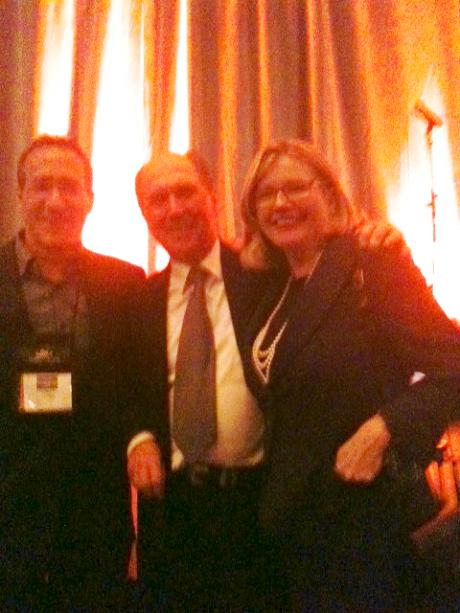Monday, July 18: The Scribbler
LET ME SHOW YOU MY COLLECTION
by James Lincoln Warren
When I was in college (lo these many, many years ago), my girlfriend took me to a cocktail party hosted by her dance teacher. It was a new experience for me, attending an adult cocktail party as a guest (my previous attendance at like celebrations had been confined to serving wine), and I did my best to be charming and engaging and deft at the sort of small talk required by such affairs. Rather predictably, I asked a man I had just met what business he was in. It turned out that he was in the commercial recycling (i.e., dumpster) line—no, he wasn’t anything like a gangster. He was a modest bald-headed businessman, frankly rather on the dull side, who was there because he was a patron of the arts. To be polite, I said something along the lines of how his business was one that looked forward to the future, thus expressing a sense of interest in the trash collection business I didn’t really feel.
Big mistake.
Sensing an opportunity to engage on a subject that was clearly a passion, he skewered me to the wall and held me captive for a quarter of an hour while he rhapsodically shared every detail of his fascinating life as a high-end garbage man with me. I was eventually and most mercifully rescued by my girlfriend, who snagged me away to meet the hostess (whom I had already met, but the garbage man didn’t know that) and then spent the rest of the evening avoiding my new acquaintance.
Yes, Virginia, there is such a thing as Too Much Information.
Recently, a friend of mine sent me a manuscript with a request that I look it over to make suggestions for its improvement. One of the things he is most concerned about is whether he is inserting too much extraneous information on the non-mystery related subject that forms the background for the work, a subject on which he is an acknowledged expert. He’s afraid that he will bore the reader, like the garbage collector at the party. He told me he had already surgically removed vast amounts of expertise that didn’t relate directly to his plot, but still thought maybe he was overdoing it. He knows there is a natural but delusional sentiment on most people’s parts to assume that any sensitive and intelligent person must feel the same gravitational pull of a topic for which one harbors an abiding passion oneself.
I’ve written before about falling so in love with one’s research that one fails to realize when it’s become a vice rather than a virtue, comparing research to underwear. Authorial aside: Here on CB, Rob has also mentioned the excruciating experience of being compelled to listen to the interminable rants of experts from whom one has sought the answer to a straightforward question, which for some reason I can’t find. To show how easily falling into this particular seductive trap is, I confess that not too long ago I subjected him to such a blast myself, when he asked me a very simple question about the Navy which I answered with a multipartite treatise, the vast majority of which was completely irrelevant to his purpose. No, I tell a lie. All of it was completely irrelevant to his purpose except for the short answer to his very simple question. Oops.
But sliding back to the case at hand, the Gentle Reader will be pleased to learn that the friend who sent me his story needn’t worry about overdoing it, because the expertise imbuing his manuscript consistently relates to his story, either by limning his characters or by contributing to the plot, all the while providing a lot of very interesting and novel insights that will entertain as well as educate. Even so, his concern is well placed. I’ve always said that the main thing I want a reader to feel after he’s finished a story under my byline is that he didn’t waste his time reading it. That implies that I’ve made some sort of contribution, however slight, to the reader’s life.
That contribution may be as simple as giving the reader a break from reality. But deep in every writer’s marrow, what we really want to do is enrich the reader in some way, of making an impact that lasts beyond the time it took to read the work. Providing a little education is an excellent way to do this, because it plays on something every reader of mystery fiction (and most other fiction) craves: a sense of discovery.
The example of doing this right that I most often point out is Dorothy L. Sayers’ Murder Must Advertise (1933). Wimsey is at his most charming, even to the point of dressing up as a mysterious Harlequin and posing as his own (invented) cousin, but the thing that really makes the story work is the look under the hood at an advertising agency in the early 1930s. Sayers herself was an ad copywriter from 1922 until 1931 (she’s been credited with coining the phrase, “It pays to advertise”), and so her bona fides in taking on the subject is nonpareil. In fact, without the ad agency setting, the story would collapse—the central crime is a baroque and wholly incredible drug-smuggling conspiracy. The usual elements associated with Lord Peter’s investigations are all there in evidence to give the reader what is expected: his faculty in code-breaking, his deceptive upper-class idiocy, his partnership with reliable old Parker-bird. But it is the setting that really lifts the story from the mundane, the wholly novel portrait of the private workings of public relations. I might mention that Sayers repeated the formula with her masterpiece, Gaudy Night, replacing the advertising game with the (in those days) isolated halls of female academia, another world which Sayers knew intimately.
In neither case did she provide more than the reader could swallow. So it is with my friend’s story.
And there’s a good lesson there to anybody who writes a story based on personal experience. It isn’t enough to display facts; one must show how those facts breathe life into the characters and convey direction to the story.
As long as it isn’t about collecting garbage.























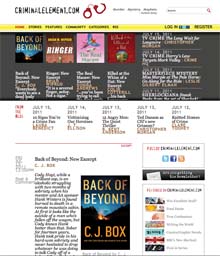

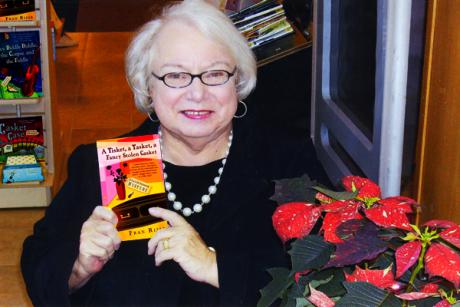
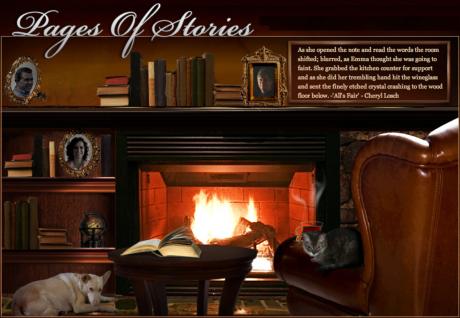




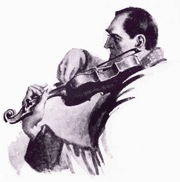 We don’t have to know why Sherlock Holmes plays the violin or succumbs to cocaine. In fact, it is the skillfulness of the author to make us wonder, but not enough to make us stop reading the story to ponder Holmes’ reasons. Although, Holmes is quite observant, he’s certainly not perfect. Maybe it’s due to that smarter brother that may have stolen too much limelight from the parents. It doesn’t matter. The characters and plot do. Sir Arthur Conan Doyle used words to convey Sherlock is human by showing him perform less than heroic acts. I doubt we would like him so much if he didn’t possess a few flaws.
We don’t have to know why Sherlock Holmes plays the violin or succumbs to cocaine. In fact, it is the skillfulness of the author to make us wonder, but not enough to make us stop reading the story to ponder Holmes’ reasons. Although, Holmes is quite observant, he’s certainly not perfect. Maybe it’s due to that smarter brother that may have stolen too much limelight from the parents. It doesn’t matter. The characters and plot do. Sir Arthur Conan Doyle used words to convey Sherlock is human by showing him perform less than heroic acts. I doubt we would like him so much if he didn’t possess a few flaws. I like that Edward D. Hoch’s Nick Velvet only hires himself out to recover objects of negotiable worth. Of course, “recover” isn’t as much what Velvet does as thievery, but it soothes his soul to think of it that way. I think it makes us like a burglar when on first thought we wouldn’t. I like if even more when we find out even worthless objects mean something to someone, and definitely enough to pay to have removed from its current owner’s possession.
I like that Edward D. Hoch’s Nick Velvet only hires himself out to recover objects of negotiable worth. Of course, “recover” isn’t as much what Velvet does as thievery, but it soothes his soul to think of it that way. I think it makes us like a burglar when on first thought we wouldn’t. I like if even more when we find out even worthless objects mean something to someone, and definitely enough to pay to have removed from its current owner’s possession.
